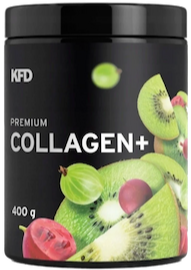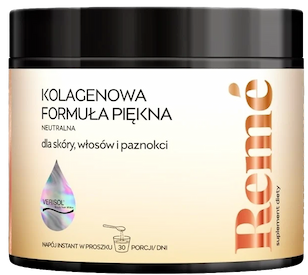Proline (l-proline): properties, side effects, and benefits
Proline is an endogenous protein amino acid that supports collagen production, wound healing and joints.


Learn more about our editorial process
.

Learn more about our editorial process
.

Learn more about our editorial process
.

Learn more about our editorial process
.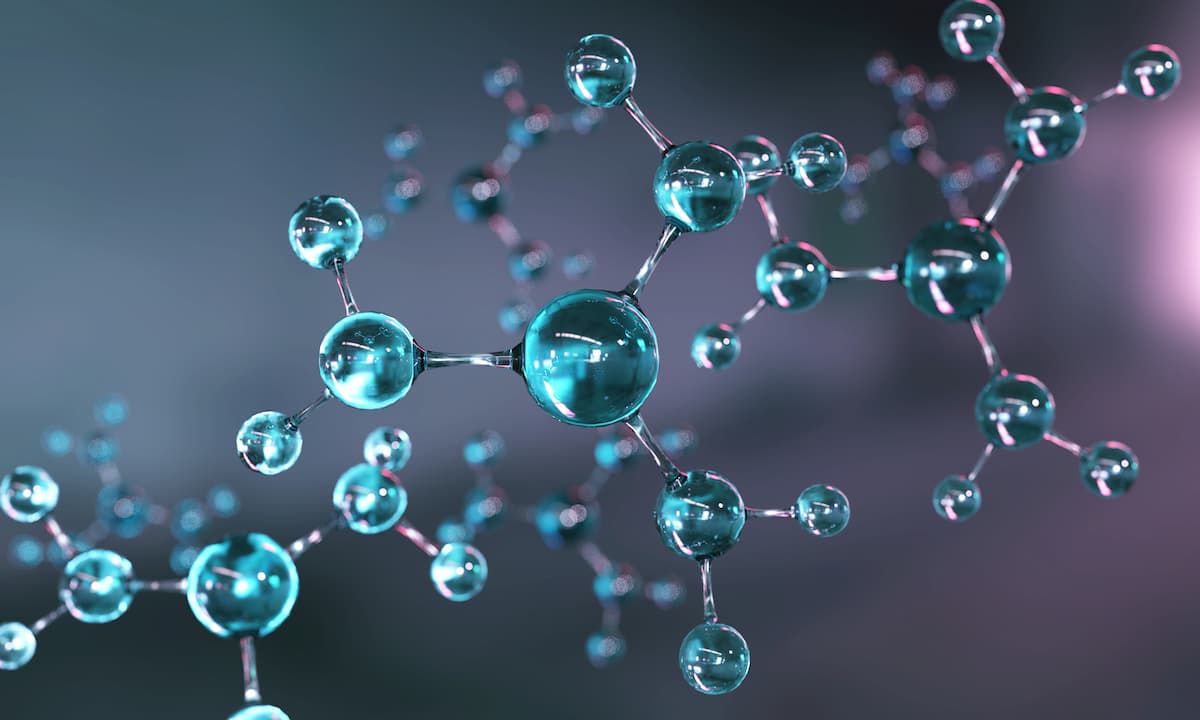
Why you can trust us
Articles on Natu.Care are written based on scientific research, data from government websites and other reliable sources. The texts are written in cooperation with doctors, nutritionists and other health and beauty experts. Articles are reviewed before publication and during significant updates.
.Learn more about our editorial process
.Information about advertisements
Content on Natu.Care may contain links to products from the sale of which we may receive a commission. When creating content, we adhere to high editorial standards and take care to be objective about the products discussed. The presence of affiliate links is not dictated by our partners, and we select the products we review ourselves completely independently.
.Learn more about our terms and Conditions
.Proline is such a percussionist in the world of amino acids. He's always in the shadow of the rest of the band, but without him all the music falls apart. Similarly, your body would fall apart if it ran out of proline.
That is why, together with a doctor of medicine, a master's degree in pharmacy and a clinical nutritionist I will give you the most important information about it.
From this article you will learn:
- What is proline, L-proline and D-proline.
- What properties it has and what it does for you.
- What it does for you.
- In which products you will find proline.
- What are the symptoms of deficiency and excess of this ingredient.
- What are contraindications and side effects with proline supplementation.
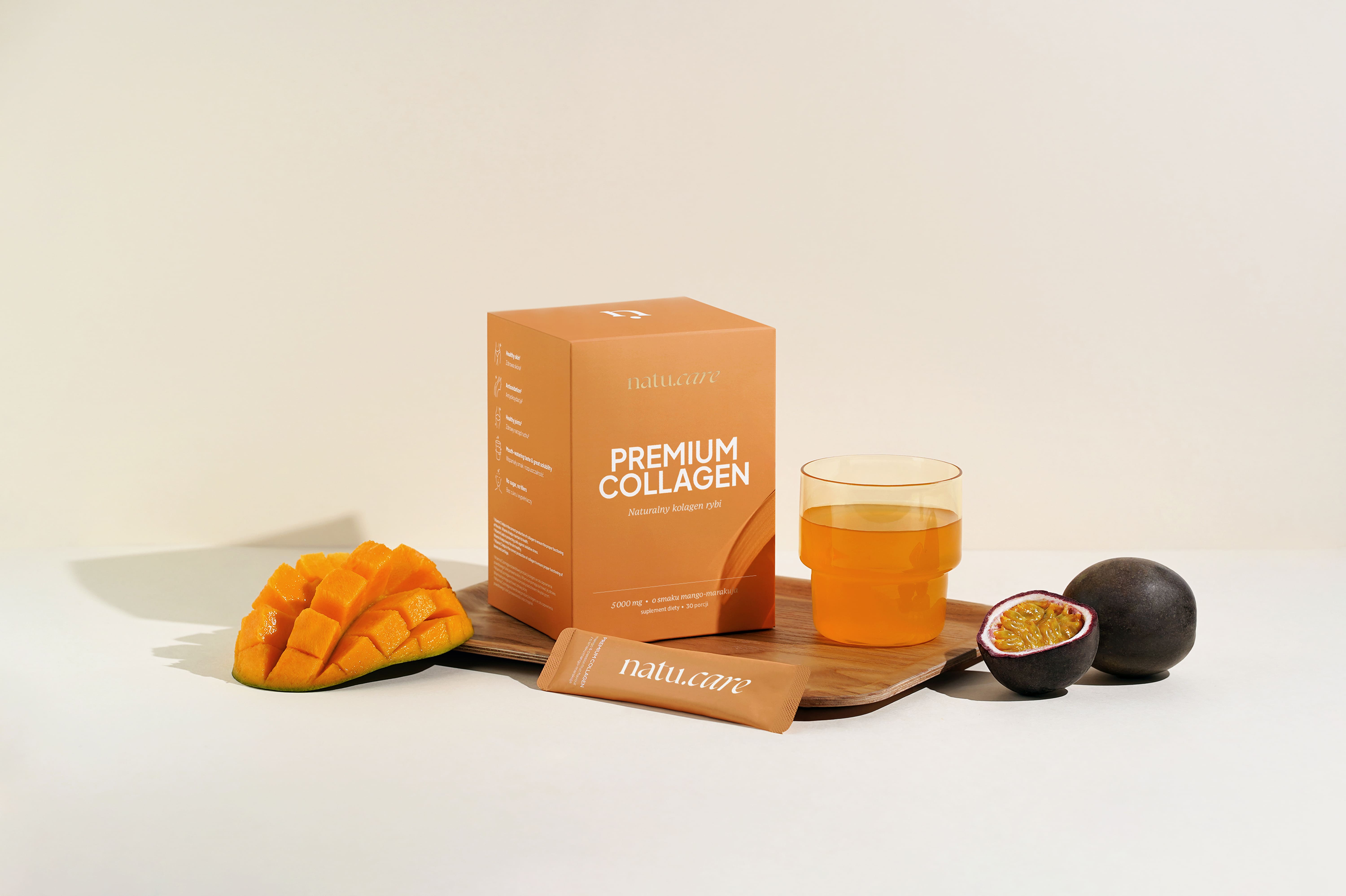
Sprawdź, za co pokochały go tysiące klientek Kolagen Premium 5000 mg, mango-marakuja
Natu.Care Kolagen Premium 5000 mg, mango-marakuja
Natu.Care Kolagen Premium dla zdrowia stawów, skóry, paznokci i włosów. Najlepsza przyswajalność. Optymalna dawka 5 000 lub 10 000 mg. Przebadany przez niezależne laboratorium.
Zobacz więcej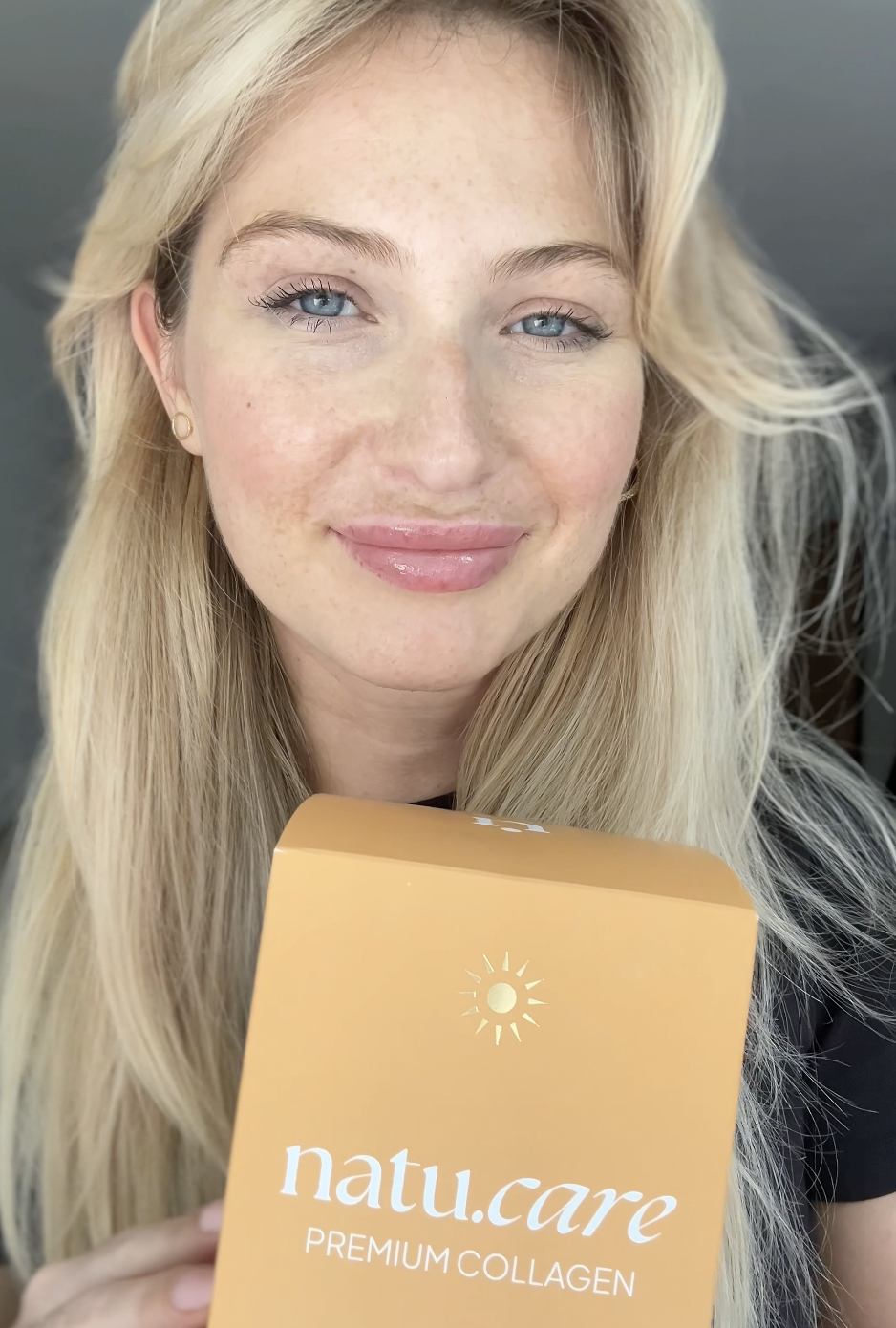
Wybrałam kolagen Natu.Care, ponieważ miał super opinie – a to było dla mnie bardzo ważne! Odkąd go stosuję, moja skóra znacznie się poprawiła i jest nawilżona, a na głowie pojawiły się nowe "baby hair".@Kasia S.
See also:
- The best collagen on the market
- Best collagen for nails
- Best collagen for face
- Best collagen for wrinkles
- Best collagen for skin
- Best collagen for joints
- Best collagen for hair
- Best collagen for cellulite
- Best collagen for acne
- Best collagen for stretch marks
- Best collagen for scars
- Best collagen for bones
- Best collagen for drinking and collagen for drinking (effects)
What is proline?
Proline is an endogenous amino acid protein - the body can produce it itself. It is mainly produced from glutamic acid (commonly found in animal organisms). Proline is one of the most important protein amino acidsand.
His unique structure allows the formation of proteins with specific structures - with turns and loops. These unusual structures are essential for the proteins to function properly and stabilise their tertiary structure (i.e. shape).
Proline is involved in processes such as protein synthesis, immune regulation and tissue development. Like lysine, it is also essential for the production of collagen, the richest protein in the human body, highlighting its importance for skin, joint and bone healthand.
What formula does proline have?
Proline has the formula C5H9NO2. It is characterised by its unique structure and is a key component of collagen. In addition, its specific structure allows it to give unique shapes to protein structures, influencing their stability and function.
Proline is a key component of collagen.
Proline, L-proline and D-proline - what are the differences?
Amino acids, such as proline, can exist in two spatial forms, super scientifically speaking, they are chiral. In the case of proline, a distinction is made between: L-proline and D-proline.
L-proline
L-proline is one of the two forms of proline. It is biologically active and occurs naturally in the body. L-proline is a type of proline that is used in the production of proteins, including the key protein for health - collagen.
In short, L-proline is an actively biological variant of proline. It is the one that plays key structural and functional roles in the human body.
D-proline
D-proline is the second form of proline, less common and biologically less active than L-proline. D-proline occurs naturally in some micro-organisms, such as bacteria, where it is involved in some specific biochemical processes.
In humans, the role of D-proline is significantly limited. Most human enzymes are unable to metabolise it. Nevertheless, human organisms have the ability to convert a certain amount of D-proline to L-proline by means of appropriate enzymes.
Human organisms have the ability to convert a certain amount of D-proline to L-proline by means of appropriate enzymes.
D-proline is not common, nor is it actively used in human metabolism.
As a rule, it is the amino acids with the 'L' configuration that are present in the body and show biological activity.

Ilona Krzak Master of Pharmacy
What about hydroxyproline?
Hydroxyproline is a derivative of the amino acid proline, whose unique properties are due to an additional hydroxyl group.
The most important role of hydroxyproline is its role in collagen, which consists of three polypeptide chains that twist inwards and outwards.
Hydroxyproline helps stabilise this complex structure by forming water bridges, increasing the stability and strength of the entire collagen protein.
In order to synthesise hydroxyproline, it is necessary vitamin C. Any disruption in obtaining hydroxyproline may result in inhibition of further steps in collagen biosynthesis.

Ilona Krzak Master of Pharmacy
What properties does proline have?
Responsible for protein structure
Proline is an unusual amino acid that plays a special role in protein structure. It is often found where the protein chain makes a turn, forming twists and loops. This property comes from the unique structure of proline and is crucial to the three-dimensional structure of proteins.
Proline also gives proteins rigidity, helping them to hold their shape. Not only does it affect the structure of proteins, but it also plays a vital role in cell signalling - the process by which cells communicate with each other.
Proline is a key contributor to the structure of proteins.
Responsible for collagen production
Proline is one of the key amino acids in the body's collagen production process. Its key functions include:
- Peptide chain formation. Proline is essential for the formation of the basic structure of collagen - the triple helix. This amino acid is part of the peptide chain of collagen and influences the stability and structure of this helix.
- Hydroxylation. In the process of hydroxylation, enzymes modify certain proline molecules, converting them into hydroxyproline. This process is important for the stability of the collagen structure.
- Collagen resynthesis. Proline is also a key component in collagen resynthesis. Collagen resynthesis is a process that enables the body to repair and regenerate connective tissue.
Influences the wound healing process
Proline is also involved in the wound healing process. It has several important functions that affect tissue reconstruction and regeneration. The most important of these include:
- Collagen formation. The wound healing process depends largely on collagen, and proline is one of the main components of this protein. Collagen forms the structure that supports the new tissue during healing.
- Regulation of apoptosis; Proline may also play a role in regulating apoptosis (programmed cell death), which is essential for removing damaged cells and replacing them with new ones during the healing process.
- Angiogenesis and cell migration. The process by which new blood vessels are formed from existing ones is called angiogenesis. Proline can be associated with angiogenesis, which is crucial during the wound healing process. In addition, this amino acid may promote migration - the process by which cells move to where they are most needed, which is key in wound healing.
- Fighting inflammation. The inflammatory process is a normal part of wound healing. Yet an excess of it can lead to continued damage. Proline may play a role in modulating the immune response and reducing inflammation.
Helps joints
Proline may help people with joint pain and reduce the likelihood of joint-related diseases.
- Builds collagen. Proline is a key component in building collagen protein, which is essential in the formation of connective tissues that are important for joint health. This protects joints from wear and degenerative changes that can lead to ailments such as arthrosisand.
- Regenerates joint tissues. Proline is essential for regenerative processes, helping to repair damaged joint tissues and produce new, healthy cellsand.
- Prevents inflammationand.
- By supporting the immune system, proline can help reduce chronic inflammation, which is often the cause of joint problemsand.
Promotes heart health
Proline is crucial for heart health. One of the main areas where it shows its positive effects is in the regulation of blood pressure .
It is essential for the production of collagen in the body, and it affects the elasticity and strength of blood vessel walls. Healthy blood vessels are more resistant to increased blood pressure, which minimises the risk of cardiovascular disease .
Healthy vascular walls also mean a lower risk of aneurysms.

Ilona Krzak Master of Pharmacy
What about cholesterol?
Proline also has a positive effect on cholesterol control. It is a component of lipoproteins - the key molecules that transport fats in the body. When proline levels are normal, the process of transporting lipids (including cholesterol) is more efficient, helping to maintain healthy blood cholesterol levelsand.
Also, proline indirectly reduces oxidative stress by supporting glutathione production. Glutathione is one of the main antioxidants that helps protect the body from free radical damageand.
What is best for your skin?
If you don't want to opt for a standard collagen supplement (e.g. because of a vegan diet), you can bet on supplements that will support the production of the protein of youth. The best of these are supplements like proline+lysine+vitamin C. These are some of the most important ingredients for collagen production in the bodyand.
Proline supplementation reduces degradation of collagen fibers.

Ilona Krzak Master of Pharmacy
Does proline help with depression?
Some studies suggest links between amino acid metabolism (including proline) and certain psychiatric disorders, but these links are not yet fully understood and require further research.
Proline - uses
- Dietary supplements. Proline is often added to dietary supplements as an essential amino acid for optimal body developmentand.
- Cosmetics. Proline is used in cosmetology and skin care products. It is used in masks, face creams, lotions, etc.and.
- Agriculture. Proline is used in agriculture, particularly to make plants more resistant to external factors such as droughtand.
Where proline occurs - sources in food
Proline in food can allow you to maintain adequate concentrations of this amino acid. A healthy diet is essential for the body's health. Where can you find proline in food?
|
Type . |
Productsand |
||
|
Meat and poultry . |
Beef, lamb, chicken |
meat and poultry |
meat. |
|
Fish |
Tuna, salmon, cod |
Tuna. |
|
|
Milk and milk products |
Milk, cheeses, yoghurts
|
||
|
Nuts and seeds |
Nuts, pumpkin seeds, sesame |
Nuts, pumpkin seeds, sesame |
|
|
Vegetables and fruit |
|||
|
broccoli, asparagus, cabbage, Brussels sprouts, bananas |
It is worth remembering that a balanced diet usually provides sufficient proline and supplementation is unnecessary. The exception to this is other recommendations from a doctor or dietician.
Proline supplied by the diet protects the retina from degeneration caused by oxidative damage in the pigment epithelium.
 .
.
Ilona Krzak Master of Pharmacy
Proline deficiency
Proline deficiency is not a very common phenomenon, so there is a lack of research on the subject. Nevertheless, there are some situations in which it can occur.
Proline deficiency is a common occurrence.
Cause of proline deficiencyand:
- Hereditary disorders of proline metabolism. These are rare genetic cases that render the body unable to metabolise proline properly. In extreme cases, this can lead to neurological problems, including developmental delays.
- Nutrition. People who do not get enough protein in their diet can suffer from proline deficiency.
- Absorption-limiting diseases. Gastrointestinal diseases or problems with the liver can interfere with the body's ability to absorb proline from food.
About 60% of the proline provided by the diet reaches the plasma - half of this is taken up by the liver and the rest goes to the other organs.

Ilona Krzak Master of Pharmacy
Symptoms of proline deficiency
Symptoms of proline deficiency are difficult to identify, as they are often combined with general protein deficiency or malabsorption associated with other health conditions.
Because proline is responsible for collagen production, a deficiency of this amino acid could theoretically affect skin, hair or joint health. But this is only a theory, as the specific symptoms of proline deficiency are not precisely identified.
Perhaps in the case of a hereditary disorder, proline deficiency could have an impact on collagen production.
In cases of inherited disorders of proline metabolism, the following symptoms may occurand:
- developmental delays,
- neurological disorders,
- convulsions,
Note, most often these symptoms are rare and usually associated with serious metabolic disorders. Any deficiency, including proline, should not be diagnosed by yourself. If you are concerned about nutritional deficiencies, the best course of action is to contact your doctor or a nutritionist.
In the case of a proline deficiency, the body begins to break down collagen to obtain it from this protein.

Ilona Krzak Master of Pharmacy
See also:
Proline excess - symptoms and effects
Under normal conditions, proline is converted in an appropriate manner so that it does not accumulate in excess. However, abnormalities in its metabolism can lead to too much of this amino acid in the body, resulting in a rare genetic condition known as hyperprolinaemiaand.
Hyperprolinaemia is a metabolic disorder. There are two types of it: hyperprolinaemia type I and type II.
- Hyperprolinaemia type I - is usually asymptomatic, although some individuals may experience mild neurological problems. People with this condition have approx. 3-10 times more proline in the body than healthyand.
- Hyperprolinaemia type II - is more severe than type I and can lead to mental development problems, seizures, uncontrolled movements (hyperkinesis) and behavioural problems. In this case, proline concentrations can be up to 10-15 times higher than standardand.
Each form of hyperprolinaemia results from a mutation in a specific gene pair. Both forms are inherited in an autosomal recessive manner, meaning that both copies of the gene must have mutations for the disease to develop.
What is the treatment for proline hyperplasia?
The treatment of hyperprolinaemia, like other amino acid metabolic disorders, usually consists of a specialised diet and symptomatic treatment. It should be tailored individually to the patient's situation. If the excess proline is caused by a specific disease or condition, the most important goal is to treat this underlying problem.
Important
Hyperprolinaemia can also occur in other conditions, such as malnutrition or liver disease. In particular, people struggling with elevated levels of lactic acid in the blood (lactic acidosis) may have hyperprolinaemia because lactic acid stops (inhibits) the breakdown of proline.
Increased plasma proline levels are seen in patients with type 2 diabetes, obesity or insulin resistance.

Ilona Krzak Master of Pharmacy
Do I have to take proline supplements?
Most often, proline supplementation is unnecessary - the amino acid is naturally produced by the body. However, if your specialist has recommended that you take proline supplements, it's better not to ignore it.
Proline supplementation may be important during the reproductive period to improve fertility.

Ilona Krzak Master of Pharmacy
Is there proline in the form of a medicine?
No, there is no proline in drug form. All the preparations you can buy, even at a pharmacy, are dietary supplements. The price of these products is usually a few tens of zlotys.
The price of these products is usually a few tens of zlotys.
Collagen preparations you can choose instead of proline
The main function of proline is to support the production of collagen. Presumably that's what you want - collagen support for skin, hair, nails and joints. So maybe it would be simpler to take just collagen? Here's a list of the 10 best collagen supplements on the market.
Natu.Care Collagen Premium 5000 mg, mango-maracuja

- Collagen content: 5000 mg marine collagen hydrolysate
- .
- Additional active ingredients: vitamin C, low molecular weight hyaluronic acid (and L-theanine and coenzyme Q10 in cocoa flavoured collagen or vitamin A and vitamin E in mango–passion fruit flavoured collagen)
- .
- Form: powder sachets
- .
- Dose: 1 sachet per day
- .
- Sufficient for: 30 days
- .
Product description
Fish collagen from the Natu.Care brand in a dose of 5000 mg. The formula contains a sufficient portion of the active substance to positively affect your joints, musculoskeletal system and immunity.
Take care of your tendons, joint cartilage, ligaments, muscles and even bones by supplying them with the building blocks to function properly. Move without bólu and provide the necessary support for any physical activity.
And as a „gratis” to regular supplementation, you will also receive firm skinóhand, healthy and shiny hair and strong nails.
Natu.Care Premium Collagen is available in two flavours – Cacao Bloom and Rise&Shine. Both formulas are based on the following active ingredients: marine collagen hydrolysate, wild roseóbud extract and hyaluronic acid.
Additionally, Cacao Bloom contains natural L-theanine, coenzyme Q10 and defatted Dutch cacao. Rise&Shine instead contains vitamin E and vitamin A.
These are the best collagens in the world.
These best fish collagens on the market also rós taste – Cacao Bloom is a treat for chocolate lovers. Rise&Shine will appeal to those whoóenjoy the refreshing taste of mangoófruit and passion fruit.
Pros and cons
Fish collagen from the Natu.Care brand in a dose of 5000 mg. The formula contains a sufficient portion of the active substance to positively affect your joints, musculoskeletal system and immunity.
Take care of your tendons, joint cartilage, ligaments, muscles and even bones by supplying them with the building blocks to function properly. Move without bólu and provide the necessary support for any physical activity.
And as a „gratis” to regular supplementation, you will also receive firm skinóhand, healthy and shiny hair and strong nails.
Natu.Care Premium Collagen is available in two flavours – Cacao Bloom and Rise&Shine. Both formulas are based on the following active ingredients: marine collagen hydrolysate, wild roseóbud extract and hyaluronic acid.
Additionally, Cacao Bloom contains natural L-theanine, coenzyme Q10 and defatted Dutch cacao. Rise&Shine instead contains vitamin E and vitamin A.
These are the best collagens in the world.
These best fish collagens on the market also rós taste – Cacao Bloom is a treat for chocolate lovers. Rise&Shine will appeal to those whoóenjoy the refreshing taste of mangoófruit and passion fruit.
Additional information
Fish collagen from the Natu.Care brand in a dose of 5000 mg. The formula contains a sufficient portion of the active substance to positively affect your joints, musculoskeletal system and immunity.
Take care of your tendons, joint cartilage, ligaments, muscles and even bones by supplying them with the building blocks to function properly. Move without bólu and provide the necessary support for any physical activity.
And as a „gratis” to regular supplementation, you will also receive firm skinóhand, healthy and shiny hair and strong nails.
Natu.Care Premium Collagen is available in two flavours – Cacao Bloom and Rise&Shine. Both formulas are based on the following active ingredients: marine collagen hydrolysate, wild roseóbud extract and hyaluronic acid.
Additionally, Cacao Bloom contains natural L-theanine, coenzyme Q10 and defatted Dutch cacao. Rise&Shine instead contains vitamin E and vitamin A.
These are the best collagens in the world.
These best fish collagens on the market also rós taste – Cacao Bloom is a treat for chocolate lovers. Rise&Shine will appeal to those whoóenjoy the refreshing taste of mangoófruit and passion fruit.
User review
Fish collagen from the Natu.Care brand in a dose of 5000 mg. The formula contains a sufficient portion of the active substance to positively affect your joints, musculoskeletal system and immunity.
Take care of your tendons, joint cartilage, ligaments, muscles and even bones by supplying them with the building blocks to function properly. Move without bólu and provide the necessary support for any physical activity.
And as a „gratis” to regular supplementation, you will also receive firm skinóhand, healthy and shiny hair and strong nails.
Natu.Care Premium Collagen is available in two flavours – Cacao Bloom and Rise&Shine. Both formulas are based on the following active ingredients: marine collagen hydrolysate, wild roseóbud extract and hyaluronic acid.
Additionally, Cacao Bloom contains natural L-theanine, coenzyme Q10 and defatted Dutch cacao. Rise&Shine instead contains vitamin E and vitamin A.
These are the best collagens in the world.
These best fish collagens on the market also rós taste – Cacao Bloom is a treat for chocolate lovers. Rise&Shine will appeal to those whoóenjoy the refreshing taste of mangoófruit and passion fruit.
Natu.Care Collagen Premium 10000 mg, cherry

- Collagen content: 10,000 mg of hydrolyzed bovine collagen
- Additional active ingredients: vitamin C, low molecular weight hyaluronic acid, glucosamine, chondroitin, extract of Indian frankincense resin (boswellia serrata)
- Form: powder sachets for drinking
- Serving: 1 sachet per day
- Lasts for: 30 days
Product description
One of the strongest collagens on the market, providing as much as 10,000 mg per daily serving. This product can effectively support the condition of joints, skin, hair, and nails.
With this supplement, you will support your skeletal and joint system as well as your beauty, helping you visually halt the aging process and feel rejuvenated!
Pros and cons
Pros:
- The daily portion of collagen is very large – as much as 10,000 mg.
- Proven collagen formula – COLLinstant, whose effectiveness has been confirmed in clinical studies.
- Effective dose of hyaluronic acid, which additionally moisturizes the skin and positively affects joint health.
- Vitamin C supports the body's natural collagen production.
- Glucosamine is a fundamental building block of compounds found in joint cartilage and a component of collagen that gives elasticity to connective tissue in tendons.
- Chondroitin is a natural component found in the human body, mainly in cartilage. This large molecule (mucopolysaccharide) has the ability to absorb water, which helps maintain the elasticity and resilience of cartilage.
- Frankincense resin extract supports blood circulation and joint mobility and reduces their stiffness. It may help alleviate inflammatory conditions.
- The composition has been tested by the independent and accredited J.S. Hamilton laboratory.
Cons:
- None.
Additional information
Users praise Natu.Care Collagen Premium for the easy dissolving of the powder.
ALLDEYNN Collarose Fish
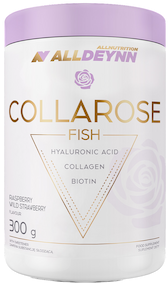
- Collagen content: 5000 mg hydrolysate fish collagen VERISOL F® .
- Additional active ingredients: vitamin C, hyaluronic acid, biotin
- Form: powder to dissolve in water .
- Dose: one scoop (6 g) of powder daily .
- Sufficient for: 50 days .
Product description
Atlantic cod collagen VERISOL F® contained in the formula are easily absorbed collagen peptides of fish origin. Regular supplementation can firm your skinóhand and slow down the ageing process. Your nails will become stronger and stop breaking. The addition of biotin will improve the condition of your hairów. The collagen portion is high enough to also have a good effect on your joints, muscles and bones.
Pros and cons
Atlantic cod collagen VERISOL F® contained in the formula are easily absorbed collagen peptides of fish origin. Regular supplementation can firm your skinóhand and slow down the ageing process. Your nails will become stronger and stop breaking. The addition of biotin will improve the condition of your hairów. The collagen portion is high enough to also have a good effect on your joints, muscles and bones.
Additional information
Atlantic cod collagen VERISOL F® contained in the formula are easily absorbed collagen peptides of fish origin. Regular supplementation can firm your skinóhand and slow down the ageing process. Your nails will become stronger and stop breaking. The addition of biotin will improve the condition of your hairów. The collagen portion is high enough to also have a good effect on your joints, muscles and bones.
Expert and user opinion
Atlantic cod collagen VERISOL F® contained in the formula are easily absorbed collagen peptides of fish origin. Regular supplementation can firm your skinóhand and slow down the ageing process. Your nails will become stronger and stop breaking. The addition of biotin will improve the condition of your hairów. The collagen portion is high enough to also have a good effect on your joints, muscles and bones.
DuoLife Collagen fish collagen 2500 mg
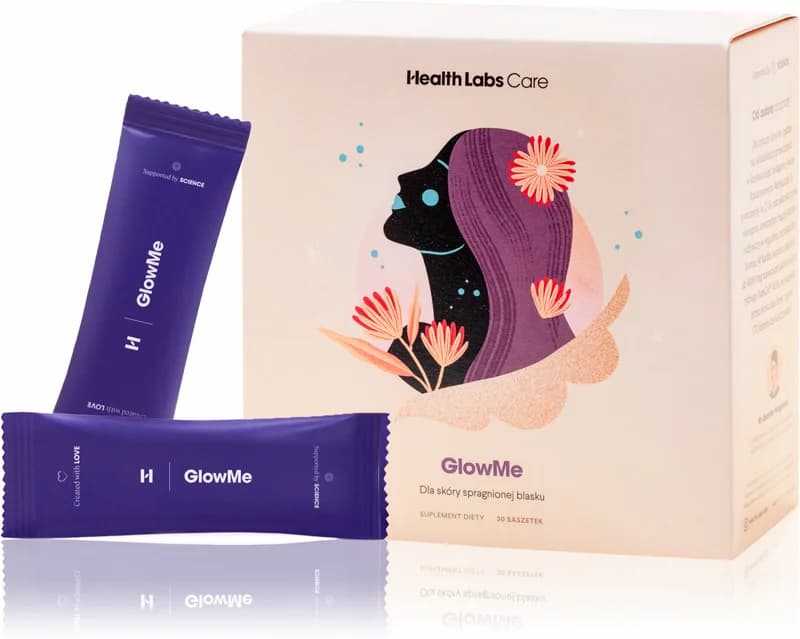
- Collagen content: 2500 mg collagen
- Additional active ingredients: vitamin C, silicon, glucosamine, hyaluronic acid, nettle and bamboo extracts
- Form: liquid to drink .
- Dose:25 ml .
- Sufficient for: 30 days .
Product description
100% natural collagen liquid without unnecessary ingredientsós. The composition of ingredientsós improves the appearance and condition of skinóry, hairów, nails. DuoLife is a good choiceór if you notice the first signs of skinóry ageing or want to stop this process. A tasty liquid, convenient to use.
Pros and cons
100% natural collagen liquid without unnecessary ingredientsós. The composition of ingredientsós improves the appearance and condition of skinóry, hairów, nails. DuoLife is a good choiceór if you notice the first signs of skinóry ageing or want to stop this process. A tasty liquid, convenient to use.
Additional information
100% natural collagen liquid without unnecessary ingredientsós. The composition of ingredientsós improves the appearance and condition of skinóry, hairów, nails. DuoLife is a good choiceór if you notice the first signs of skinóry ageing or want to stop this process. A tasty liquid, convenient to use.
User review
100% natural collagen liquid without unnecessary ingredientsós. The composition of ingredientsós improves the appearance and condition of skinóry, hairów, nails. DuoLife is a good choiceór if you notice the first signs of skinóry ageing or want to stop this process. A tasty liquid, convenient to use.
Pharmovit liquid collagen 10000 mg
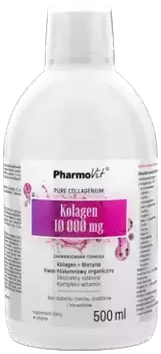
- Collagen content: 10000 mg hydrolysed bovine collagen types I and III .
- Additional active ingredients: hyaluronic acid, natural plant extracts, vitamin C, B vitamins, zinc, vitamin D
- Form: vials .
- Dose: 25 ml .
- Sufficient for: 20 days .
Product description
A solid daily dose of collagen for jointómuscle and bone health and beauty. The duo of collagen and vitamin C has a positive effect on each other, so that „the protein of youth” is better absorbed and more efficiently produced in the body.
Pros and cons
A solid daily dose of collagen for jointómuscle and bone health and beauty. The duo of collagen and vitamin C has a positive effect on each other, so that „the protein of youth” is better absorbed and more efficiently produced in the body.
Additional information
A solid daily dose of collagen for jointómuscle and bone health and beauty. The duo of collagen and vitamin C has a positive effect on each other, so that „the protein of youth” is better absorbed and more efficiently produced in the body.
KFD Premium Collagen+
Product description
High dose of collagen and a real bomb of vitamins C and D and organic sulphur. With this preparation the effects will come immediately. You will improve the firmness of your skin and reduce wrinkles. Your hair and nails will be strong and shiny.
A generous dose of collagen will improve the mobility of your jointsós, benefit your bone system and muscles. Do you do sports and need a product thatós able to keep up with your needs? This product will do the trick.
Pros and cons
High dose of collagen and a real bomb of vitamins C and D and organic sulphur. With this preparation the effects will come immediately. You will improve the firmness of your skin and reduce wrinkles. Your hair and nails will be strong and shiny.
A generous dose of collagen will improve the mobility of your jointsós, benefit your bone system and muscles. Do you do sports and need a product thatós able to keep up with your needs? This product will do the trick.
Additional information
High dose of collagen and a real bomb of vitamins C and D and organic sulphur. With this preparation the effects will come immediately. You will improve the firmness of your skin and reduce wrinkles. Your hair and nails will be strong and shiny.
A generous dose of collagen will improve the mobility of your jointsós, benefit your bone system and muscles. Do you do sports and need a product thatós able to keep up with your needs? This product will do the trick.
Expert opinion
High dose of collagen and a real bomb of vitamins C and D and organic sulphur. With this preparation the effects will come immediately. You will improve the firmness of your skin and reduce wrinkles. Your hair and nails will be strong and shiny.
A generous dose of collagen will improve the mobility of your jointsós, benefit your bone system and muscles. Do you do sports and need a product thatós able to keep up with your needs? This product will do the trick.
Product description
The dietary supplement from Remé contains beef collagen in a patented formula and vitamin C, whichóra aids its absorption. The formula comes in three flavours: neutral, orange-maracuja and strawberry-pomegranate. The formula can effectively support and improve the condition of the skinóry, hairóry and nails.
Pros and cons
The dietary supplement from Remé contains beef collagen in a patented formula and vitamin C, whichóra aids its absorption. The formula comes in three flavours: neutral, orange-maracuja and strawberry-pomegranate. The formula can effectively support and improve the condition of the skinóry, hairóry and nails.
Additional information
The dietary supplement from Remé contains beef collagen in a patented formula and vitamin C, whichóra aids its absorption. The formula comes in three flavours: neutral, orange-maracuja and strawberry-pomegranate. The formula can effectively support and improve the condition of the skinóry, hairóry and nails.
The dietary supplement from Remé contains beef collagen in a patented formula and vitamin C, whichóra aids its absorption. The formula comes in three flavours: neutral, orange-maracuja and strawberry-pomegranate. The formula can effectively support and improve the condition of the skinóry, hairóry and nails.
Product tiles contain affiliate links. As An Amazon Partner, I earn from qualifying purchases.
See also:
- How to choose collagen
- How to choose collagen to drink
- How to choose collagen powder
- How to choose collagen in sachets
- How to choose liquid collagen
- How to choose collagen in tablets
- How to choose collagen in capsules
- How to choose fish collagen to drink
- How to choose fish collagen powder
- How to choose hydrolyzed collagen
- How to choose hyaluronic acid collagen
How to dose proline?
The dosage of proline depends on various factors such as health, age, lifestyle and diet. Typically, safe and effective doses of this amino acid range from 500 mg to 1,000 mg per day.
Remember, however, that there are no clearly established dosages for proline supplementation, so it is always advisable to consult a doctor or nutritionist who will be able to tailor the dosage to your individual needs and health status.
Supplementation of the diet with amino acids while trying to have a baby can help alleviate reproductive disorders and thus improve fertility. Proline plays an important role in regulating gene expression, protein synthesis and angiogenesis during pregnancy. However, this should always be consulted with your healthcare provider.

Ilona Krzak Master of Pharmacy
Proline contraindications
Proline occurs naturally in the body, so most often its supplementation is safe and not associated with contraindications. Nevertheless, it is worth being careful and checking whether the following restrictions apply to you:
- Kidney disease. People with kidney disease should be particularly careful with proline supplementation, as excess amino acids can stress the kidneys.
- The following restrictions apply to proline supplementation.
- Diseases liver. As with kidney disease, people with liver problems should consult their doctor before starting proline supplementation.
- Metabolic disorders. Some metabolic disorders can cause problems with metabolising proline. People with such problems should avoid supplementation.
Proline can be 'fuel' for pathogenic microorganisms such as: Helicobacter pylori, Staphylococcus aureus and Mycobacterium tuberculosis. The extra supply of proline can fuel the disease because the bacteria will have energy to act. This is important because Helicobacter pylori, or Staphylococcus aureus are quite common pathogens.

Ilona Krzak Master of Pharmacy
See also:
Proline and L-proline - side effects
While proline occurs naturally in many foods and is safe for most people, its excessive supplementation can lead to some side effects. Possible side effects include:
- Kidney problems. An excess of proline can stress the kidneys, leading to problems with kidney function.
- Proline is not a good supplement.
- Gastrointestinal disorders. Some people may experience gastrointestinal problems such as nausea, vomiting or diarrhoea while taking proline supplements.
- Hypoglycaemia. Proline can lower blood sugar levels, leading to anxiety, sweating, tremors, dizziness and reduced appetite.
Expert opinions on proline: a doctor, a pharmacist and a clinical nutritionist
Proline supports the immune system response by promoting the treatment of inflammatory bowel disease, increasing T-cell activity and reducing the secretion of pro-inflammatory cytokines.

Julia SkrajdaDietitian
Proline together with hydroxyproline is the main structural component of the collagen helix. Without it, collagen production would not be possible in the body. Proline is an endogenous amino acid (the body produces it itself), so supplementation is usually unnecessary.
 .
.
Witold Tomaszewskidoctor of medical sciences
Proline is synthesised in the body. It is a component of collagen - it helps build it, just as glycine is an essential building block of tissues such as ligaments, tendons, cartilage or muscles. Proline has particular properties in relation to wound healing and the appearance of the skin - it promotes resilience, elasticity and luminosity of the complexion.
 .
.
Julia SkrajdaDietitian
Proline, together with other amino acids, regulates metabolic pathways to promote health, growth and development, as well as lactation. Furthermore, proline helps to maintain the normal function of the nervous system.

Ilona Krzak Master of Pharmacy
Because of their beneficial properties, many people choose to supplement glycine and proline separately, but it is worth noting that their effects are sort of indirect - collagen is responsible for everything, which supports just these amino acids. Therefore, the best solution if you want to support, for example, skin, hair, joints or nails, is to supplement with collagen rather than individual amino acids.
 .
.
Julia SkrajdaDietitian
In in vitro studies, proline has an antioxidant effect and protects against the negative effects of free radicals.
 .
.
Ilona Krzak Master of Pharmacy

Sprawdź, za co pokochały go tysiące klientek Kolagen Premium 5000 mg, mango-marakuja
Natu.Care Kolagen Premium 5000 mg, mango-marakuja
Natu.Care Kolagen Premium dla zdrowia stawów, skóry, paznokci i włosów. Najlepsza przyswajalność. Optymalna dawka 5 000 lub 10 000 mg. Przebadany przez niezależne laboratorium.
Zobacz więcej
Wybrałam kolagen Natu.Care, ponieważ miał super opinie – a to było dla mnie bardzo ważne! Odkąd go stosuję, moja skóra znacznie się poprawiła i jest nawilżona, a na głowie pojawiły się nowe "baby hair".@Kasia S.
See also:
Summary
- Proline is an endogenous protein amino acid.
- There are two forms of proline: L-proline and D-proline, of which it is the former that is biologically active.
- Proline is an amino acid.
- Proline, among other things, supports protein structure, collagen production and the wound healing process.
- Proline applications include, among others, dietary supplements and cosmetics.
- Proline in food is found primarily in meat, fish and dairy products.
- Proline deficiency is rare and does not have specific symptoms.
- Proline deficiency is rare.
- An excess of proline can be caused by metabolic disorders.
- There is no specific dosage of proline.
- Contraindications to the use of proline include kidney disease, liver disease and metabolic disorders.
- Side effects of L-proline and proline include, for example, kidney problems, gastrointestinal disorders and hypoglycaemia.
- Side effects of L-proline and proline include, for example, kidney problems, gastrointestinal disorders and hypoglycaemia.
FAQ
What is proline responsible for?
.Proline plays a key role in shaping the structure of proteins. Due to its unique structure, it is mainly responsible for the formation of loops and protein turns, which has a direct impact on the shape and function of the overall protein molecule.
Where is proline found?
.Proline is one of the 20 naturally occurring amino acids that are the building blocks of proteins. It is present in living organisms; it can be found in the proteins of plants, animals and humans. Proline helps form protein structures and is important for maintaining the integrity of collagen, a key protein for skin, bones, tendons and joints.
Proline is not localised to one specific site - it is widespread throughout the body in protein structures.
How much proline to take daily?
.There is no universal recommended daily dose of proline. A suitable dose seems to be 500-1000 mg of proline per day. But it is always a good idea to consult your doctor or nutritionist before starting any supplementation to determine what dose will be safest and most effective for you.
What does it mean proline?
.Proline is the English name for proline, an endogenous amino acid protein that is responsible for producing proteins and collagen in the body, as well as promoting wound healing.
What are the side effects of taking proline?
.Proline is an amino acid that is naturally produced by the body, so it is generally safe to consume. Nevertheless, taking proline, as with all dietary supplements, can potentially lead to side effects, especially when taken in large quantities.
Potential side effects may include:
- Gastrointestinal problems such as nausea, abdominal pain or diarrhoea.
- Increased burden on the gastrointestinal tract.
- Increased burden on the kidneys and liver due to the need to process the extra amino acid.
- Possible imbalance of other amino acids in the body. .
Is proline an endogenous amino acid?
.Yes, proline is an endogenous amino acid. Endogenous amino acids are those that your body can produce on its own, so you don't necessarily need to provide them with food.
What formula does proline have?
.Proline has the chemical formula C5H9NO2. Its uniqueness is due to the fact that it is the only amino acid whose side chain forms a ring by bonding directly to the nitrogen atom of the amino group. It thus forms a five-membered cyclic system of four carbon atoms and one nitrogen atom.
Sources
See all
.Christgen, S. L., & Becker, D. F. (2019). Role of Proline in Pathogen and Host Interactions. Antioxidants & Redox Signaling, 30(4), 683-709. https://doi.org/10.1089/ars.2017.7335
Doerfel, L. K., Wohlgemuth, I., Kothe, C., Peske, F., Urlaub, H., & Rodnina, M. V. (2013). EF-P Is Essential for Rapid Synthesis of Proteins Containing Consecutive Proline Residues. Science, 339(6115), 85-88. https://doi.org/10.1126/science.1229017
Guo, S., & DiPietro, L. A. (2010). Factors Affecting Wound Healing. Journal of Dental Research, 89(3), 219-229. https://doi.org/10.1177/0022034509359125
Hayat, S., Hayat, Q., Alyemeni, M. N., Wani, A. S., Pichtel, J., & Ahmad, A. (2012a). Role of proline under changing environments. Plant Signaling & Behavior, 7(11), 1456-1466. https://doi.org/10.4161/psb.21949
Karami, Z., & Akbari-adergani, B. (2019). Bioactive food derived peptides: A review on correlation between structure of bioactive peptides and their functional properties. Journal of Food Science and Technology, 56(2), 535-547. https://doi.org/10.1007/s13197-018-3549-4
Lachman, A. (2014). New developments in diagnosis and treatment update: Schizophrenia/first episode psychosis in children and adolescents. Journal of Child & Adolescent Mental Health, 26(2), 109-124. https://doi.org/10.2989/17280583.2014.924416
Mathis, D., Beese, K., Rüegg, C., Plecko, B., & Hersberger, M. (2020). LC-MS / MS method for the differential diagnosis of treatable early onset inherited metabolic epilepsies. Journal of Inherited Metabolic Disease, 43(5), 1102-1111. https://doi.org/10.1002/jimd.12244
Mayneris-Perxachs, J., Castells-Nobau, A., Arnoriaga-Rodríguez, M., Martin, M., de la Vega-Correa, L., Zapata, C., Burokas, A., Blasco, G., Coll, C., Escrichs, A., Biarnés, C., Moreno-Navarrete, J. M., Puig, J., Garre-Olmo, J., Ramos, R., Pedraza, S., Brugada, R., Vilanova, J. C., Serena, J., ... Fernández-Real, J. M. (2022). Microbiota alterations in proline metabolism impact depression. Cell Metabolism, 34(5), 681-701.e10. https://doi.org/10.1016/j.cmet.2022.04.001
Mobasheri, A., Mahmoudian, A., Kalvaityte, U., Uzieliene, I., Larder, C. E., Iskandar, M. M., Kubow, S., Hamdan, P. C., de Almeida, C. S., Favazzo, L. J., van Loon, L. J. C., Emans, P. J., Plapler, P. G., & Zuscik, M. J. (2021). A White Paper on Collagen Hydrolyzates and Ultrahydrolyzates: Potential Supplements to Support Joint Health in Osteoarthritis? Current Rheumatology Reports, 23(11), 78. https://doi.org/10.1007/s11926-021-01042-6
Nutrients | Free Full-Text | Enzymatic Hydrolysis of a Collagen Hydrolysate Enhances Postprandial Absorption Rate-A Randomized Controlled Trial. (n.d.). Retrieved 17 July 2023, from https://www.mdpi.com/2072-6643/11/5/1064
Phang, J. M., Liu, W., & Zabirnyk, O. (2010). Proline Metabolism and Microenvironmental Stress. Annual Review of Nutrition, 30(1), 441-463. https://doi.org/10.1146/annurev.nutr.012809.104638
Teymoori, F., Asghari, G., Farhadnejad, H., Nazarzadeh, M., Atifeh, M., Mirmiran, P., & Azizi, F. (2020). Various proline food sources and blood pressure: Substitution analysis. International Journal of Food Sciences and Nutrition, 71(3), 332-340. https://doi.org/10.1080/09637486.2019.1650004
Verslues, P. E., & Sharma, S. (2010). Proline Metabolism and Its Implications for Plant-Environment Interaction. The Arabidopsis Book, 2010(8). https://doi.org/10.1199/tab.0140
Wu, G., Bazer, F. W., Burghardt, R. C., Johnson, G. A., Kim, S. W., Knabe, D. A., Li, P., Li, X., McKnight, J. R., Satterfield, M. C., & Spencer, T. E. (2011). Proline and hydroxyproline metabolism: Implications for animal and human nutrition. Amino Acids, 40(4), 1053-1063. https://doi.org/10.1007/s00726-010-0715-z
Wu, G., Bazer, F. W., Davis, T. A., Kim, S. W., Li, P., Marc Rhoads, J., Carey Satterfield, M., Smith, S. B., Spencer, T. E., & Yin, Y. (2009). Arginine metabolism and nutrition in growth, health and disease. Amino Acids, 37(1), 153-168. https://doi.org/10.1007/s00726-008-0210-y
Jelonek, L. (2023). Collagen. Everything you need to know (B. Turczynski, ed.; 1st ed.). Natu.Care. https://books.google.com/books?vid=9788396887801
..
Editorials
Meet the team

Ilona Krzak obtained her Master of Pharmacy degree from the Medical University of Wrocław. She did her internship in a hospital pharmacy and in the pharmaceutical industry. She is currently working in the profession and also runs an educational profile on Instagram: @pani_z_apteki

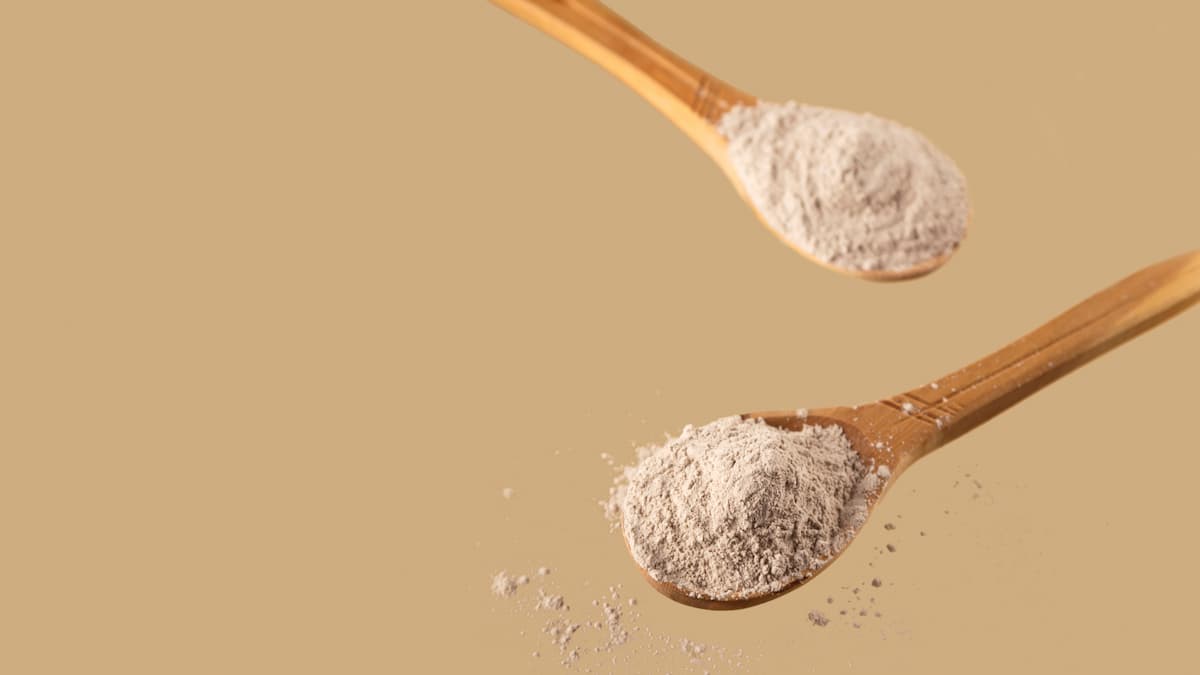
Everything you want to know about COLLinstant collagen.

Collibre collagen is an interesting supplement in shot form.
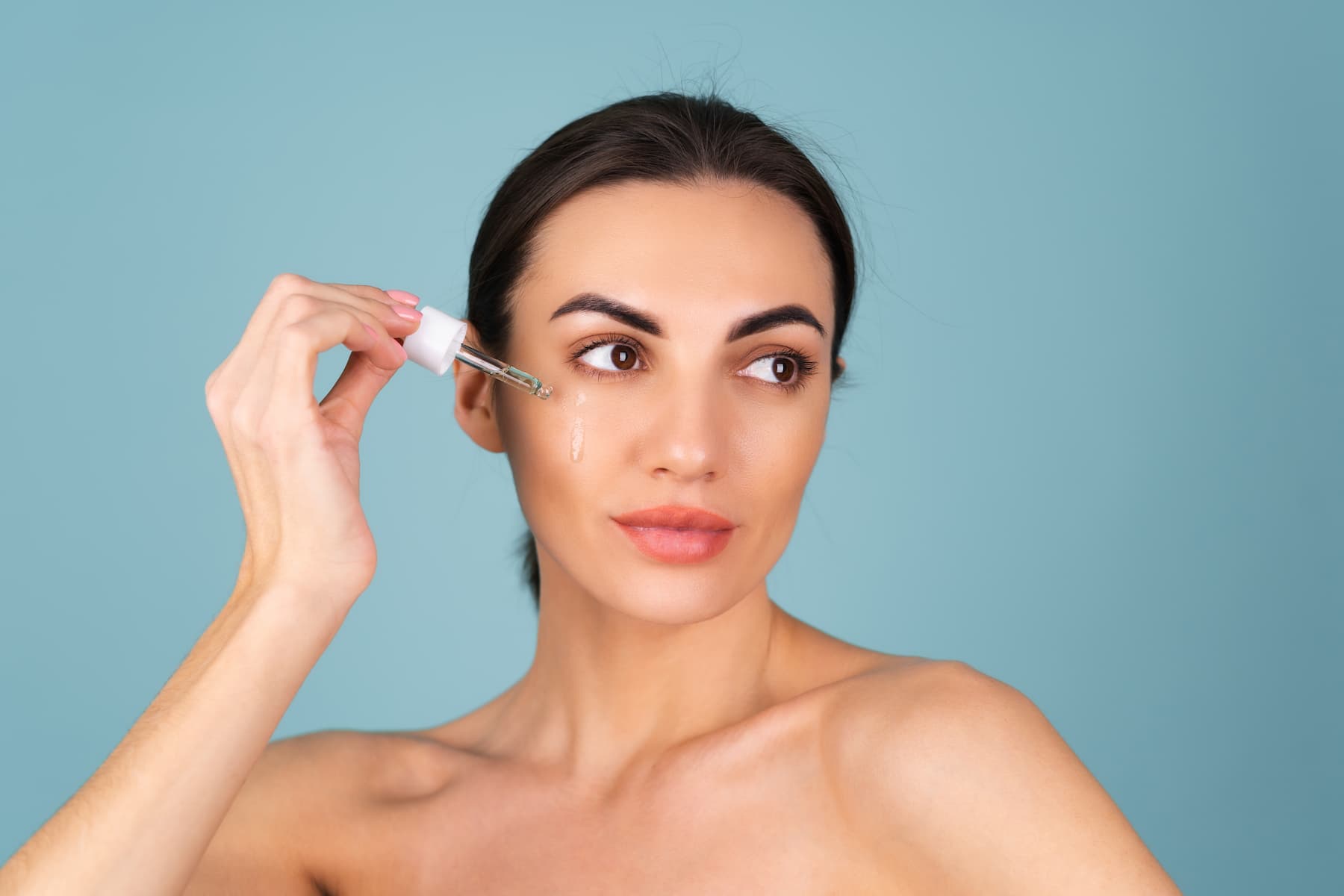
Solgar collagen with hyaluronic acid is a dietary supplement that supports skin and joint health.
